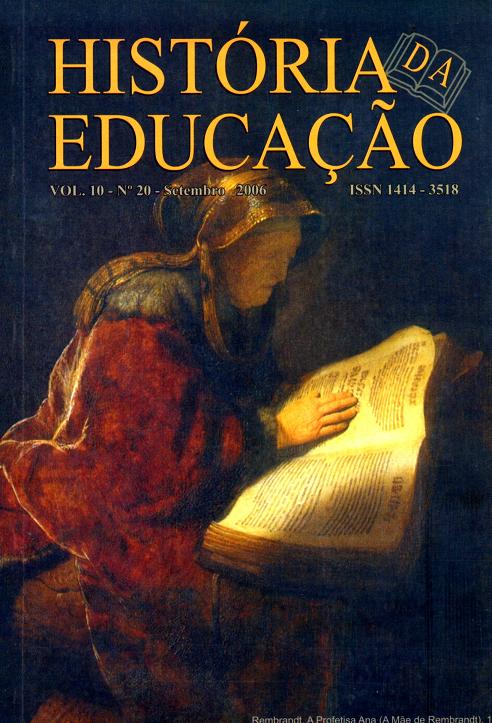La Salle e seu projeto educativo
Abstract
ResumoNo dia 6 de junho de 1694 foi criada a Sociedade das Escolas cristãs, integrada por treze cidadãos, entre eles um sacerdote, João Batista de La Salle. Para buscar sua finalidade de manter escolas gratuitas para os filhos dos artesãos e dos pobres, a sociedade produziu muitos discursos, através dos quais explicitou suas concepções de vida e sua maneira de conduzir as escolas. Entre esses escritos estão as Cartas. Tem-se conhecimento de 133 cartas redigidas por La Salle, das quais 110 dirigidas aos membros da Sociedade. Essas cartas nos trazem elementos do projeto educativo lassaliano.
Palavras-chave: educação cristã; projeto educativo; La Salle.
Abstract
On July 6 1694 the Christian Society of Schools was established by thirteen citizens and, among them, a clergyman, named John Baptist De La Salle. In order to achieve his purpose of providing gratuitous schools for “the children of the artisans and the poor”, several discourses were produced by the Society to explain its concepts of life as a way of conducting the schools. Among them are the Letters. It is known that De La Salle wrote over 133 letters, in which were aimed to the members of this Society. These letters report about the Lasallian educational project.
Key-words: christian education; educational project; La Salle.
Downloads
Downloads
Published
How to Cite
Issue
Section
License
História da Educação utilizes as a base to transfer right to the CreativeCOmmons BY license (creativecommons.org) for open access periodicals Open ArchivesIniciative (OAI), greenroad category.
Open access means making it freely available on the Internet, so that the users can read, download, copy, distribute, print, research or reference the full text of the documents, process them for indexation, utilize them as input data for software programs, or use them for any other legal purpose, without a financial, legal or technical barrier.
a) Authors keep the copyrights and grant the right of first publication to the journal, with the work simuoltaneously licenced under the Creative Commons Attribution License, which enables sharing the text with acknowlegement of authorship and initial publication in this journal.
b) Authors have permission to take up additional contracts separately for non-exclusive distribution of the version of the work published in this journal (e.g. publishing in an institutional repository or as a book chapter) with acknowledgment of authorship and initial publication in this jounral.
c) Authors have permission and are encouraged to publish and distribute their work online (e.g., in institutional repositories or on their personal page) to any point before or during the publication process, since this may generate productive changes, and also increase the impact and citation of the work published.










